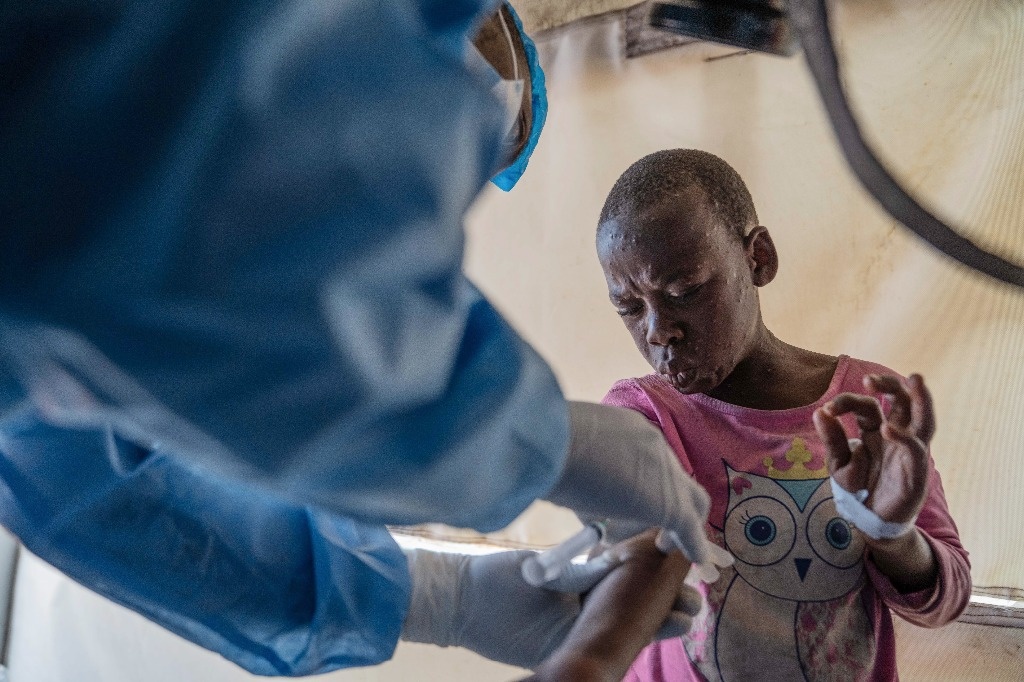Ginebra. Although the World Health Organization (WHO) is nuanced by the flow of information regarding the spread of monkeypox (mpox) cases worldwide and the rapid sexual spread of a new strain (1b), some nations in Latin America are already adopting preventive measures.
On Tuesday, the director for Europe of the World Health Organization (WHO), Hans Kluge, reported that the world already knows “a lot” about mpox, so it cannot be considered “the new covid-19.”
“MPOX is not the new Covid. Whether it is MPOX clade I, which caused the current epidemic in Central and Eastern Africa, or MPOX clade II, which caused the 2022 epidemic” worldwide, Kluge said at a press conference of UN agencies.
“We already know a lot about clade II. We still have a lot to learn about clade I,” he said, stressing that “we know how to fight mpox,” formerly known as “monkeypox.”
In view of the increase in cases of mpox in the Democratic Republic of the Congo, due to the clade Ib subtype, which also affects Burundi, Kenya, Rwanda and Uganda, the WHO decided to declare an international public health emergency on August 14, the highest alert level.
The WHO had already taken such a decision in 2022, when an mpox epidemic, then caused by clade IIB subtype, spread across the world. The alert was lifted in May 2023.
Chile, Venezuela, Argentina, Honduras and Guatemala announce measures
Afp Photo
Meanwhile, in Latin America, the Chilean and Guatemalan Ministries of Health announced today the declaration of a Preventive Health Alert and an Epidemiological Alert, respectively, with the intention of activating care protocols for suspected cases of mpox.
Similarly, Caracas, Buenos Aires and Tegucigalpa announced an epidemiological surveillance plan at ports and airports. Among the measures that will begin to be implemented are health controls at points of entry into the country, to identify possible imported cases.
As a result of these measures, Argentina has notified that it is isolating a Liberian-flagged vessel that was coming from the port of Santos, in southeastern Brazil, given that one of the crew members has symptoms compatible with the so-called monkeypox (Mpox).
The decisions taken by nations in the region are based on the WHO emergency issued on August 14. The WHO already made such a decision in 2022, when an mpox epidemic, then caused by clade IIB subtype, spread throughout the world. The alert was lifted in May 2023.
The virus was discovered in 1958 in Denmark in monkeys bred for research. In 1970, it was first detected in a human in what is now the Democratic Republic of the Congo (formerly Zaire) with the spread of a clade I subtype, which was generally transmitted through contact with animals.
According to Catherine Smallwood of the WHO’s European office, no animal-to-human transmission of clade Ib has been detected so far. “This appears to be a strain of the virus that circulates exclusively within the human population” and “is likely to be transmitted more efficiently between humans.”
“We know that clade I is more dangerous than clade II,” added a WHO spokesman in Geneva, Tarik Jasarevic, but specialists are trying to find out if there is a real difference between clade Ia and clade Ib, in terms of severity.
#Mpox #covid19 #countries #Latin #America #adopt #measures
– 2024-08-22 19:43:18
